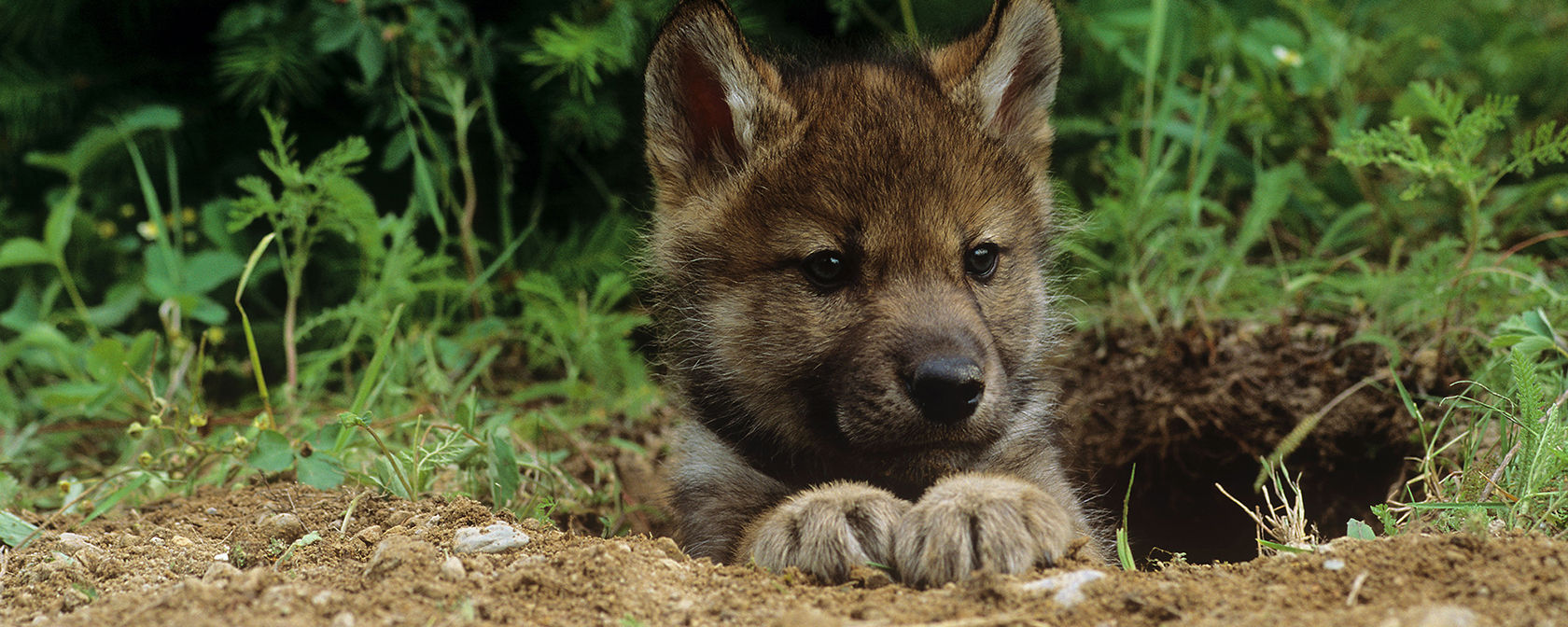By Sara Amundson and Kitty Block
In the spring, wolf dens are usually full of young pups being raised by their parents and helper wolves, but when one den in Idaho was discovered vacant earlier this year, biologists worked on uncovering the reason. Today, the Washington Post reported that eight wolf pups from the Timberline wolf pack were killed by agents from the U.S. Department of Agriculture’s Wildlife Services, a division that, while unknown to most Americans, takes a heavy toll on wildlife—and native carnivores in particular.
These particular killings are even more heartbreaking because this pack had been studied by students from the nearby high school for nearly 20 years. Timberline High students were shocked to learn that federal agents had killed the pups, and said they planned to reach out to urge President Biden to restore federal Endangered Species Act protections for gray wolves. While it is difficult to find optimism among the steady assaults on wolves, it is deeply inspiring that these young people are joining the cause to save them.
At the Humane Society of the United States and Humane Society Legislative Fund, we are on high alert in our work to reinstate protections for gray wolves. The killing of the Timberline pups is simply the latest example of the ongoing threats to wolves that we have confronted over the last decade.
While tragic, the demise of the Timberline wolf pack is unfortunately not a unique story. Threats to wolves are increasingly coming from all sides—from federal agencies, state lawmakers and agencies, ranchers who want to graze their cattle near wolf territory and trophy hunters eager to shoot and trap wolves.
The written mission of Wildlife Services is to “resolve wildlife conflicts to allow people and wildlife to coexist,” but while the agency has started to take much-needed steps to increase its use of nonlethal coexistence measures, the go-to methods at Wildlife Services far too often still involve traps, guns and poison. In reality, numerous scientific studies have demonstrated that wolves cause very few livestock losses; in fact, indiscriminately killing wolves can lead to greater losses by disrupting stable family structures and sending inexperienced wolves off to fend for themselves.
Wolves—particularly in the Northern Rockies (Idaho, Montana and Wyoming) and Wisconsin—are the victims of an unprecedented war that has nothing to do with protecting the environment, people or even livestock. Although wolves remain an iconic symbol of the wild to most Americans, to some they’ve become a political pawn in power plays that ignore both science and ethics. Idaho (and Montana) recently passed laws this year that pander to trophy hunters, trappers and even private contractors, allowing them to kill wolves at levels that could push the Northern Rockies wolf population to the brink.
Thankfully, in response to a petition we filed with our allies, the U.S. Fish and Wildlife Service is currently beginning a formal review process to determine whether to extend endangered species protections to wolves in the Northern Rocky Mountains region. The agency’s determination that wolves may warrant federal protection is largely in response to those new Idaho and Montana laws that authorize unprecedented killing of wolves. That determination by the FWS is an important step, but as the killing of these eight wolf pups show, it’s simply not happening fast enough to spare the animals. Wolves in Idaho and Montana are under attack right now, and they cannot afford to suffer months of wanton slaughter while the FWS completes its review. The agency must immediately restore endangered species protections to wolves in the region on an emergency basis before it’s too late.
You can be a voice for wolves, too. Tell the U.S. Department of the Interior that wolves in the Northern Rockies need protections now.
Kitty Block is President and CEO of the Humane Society of the United States.




